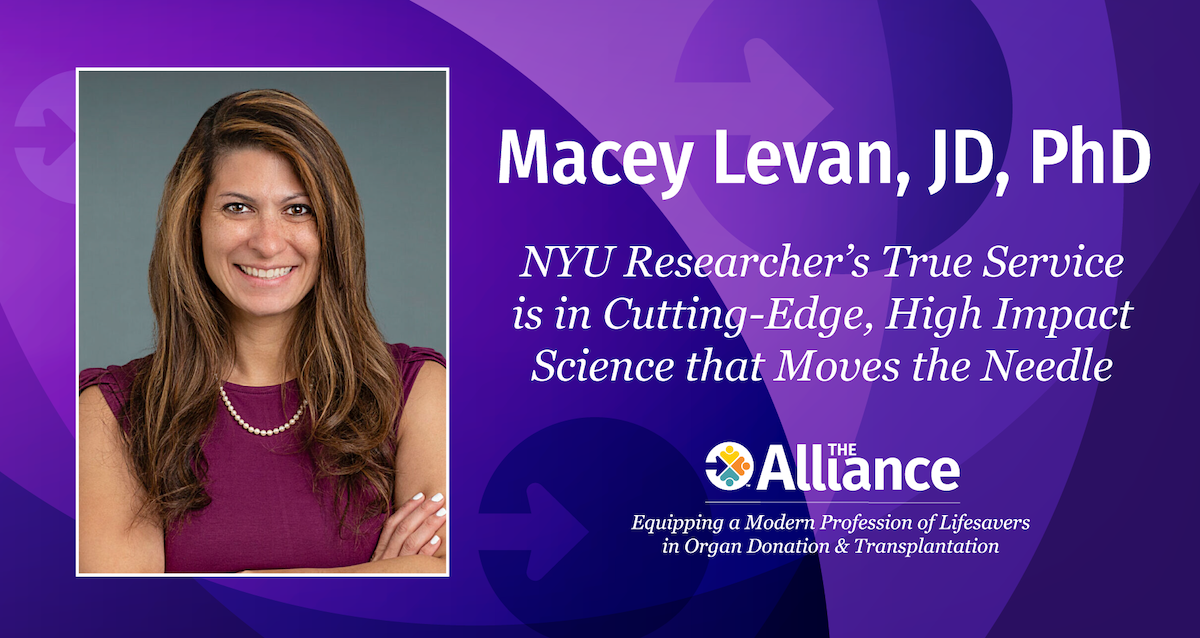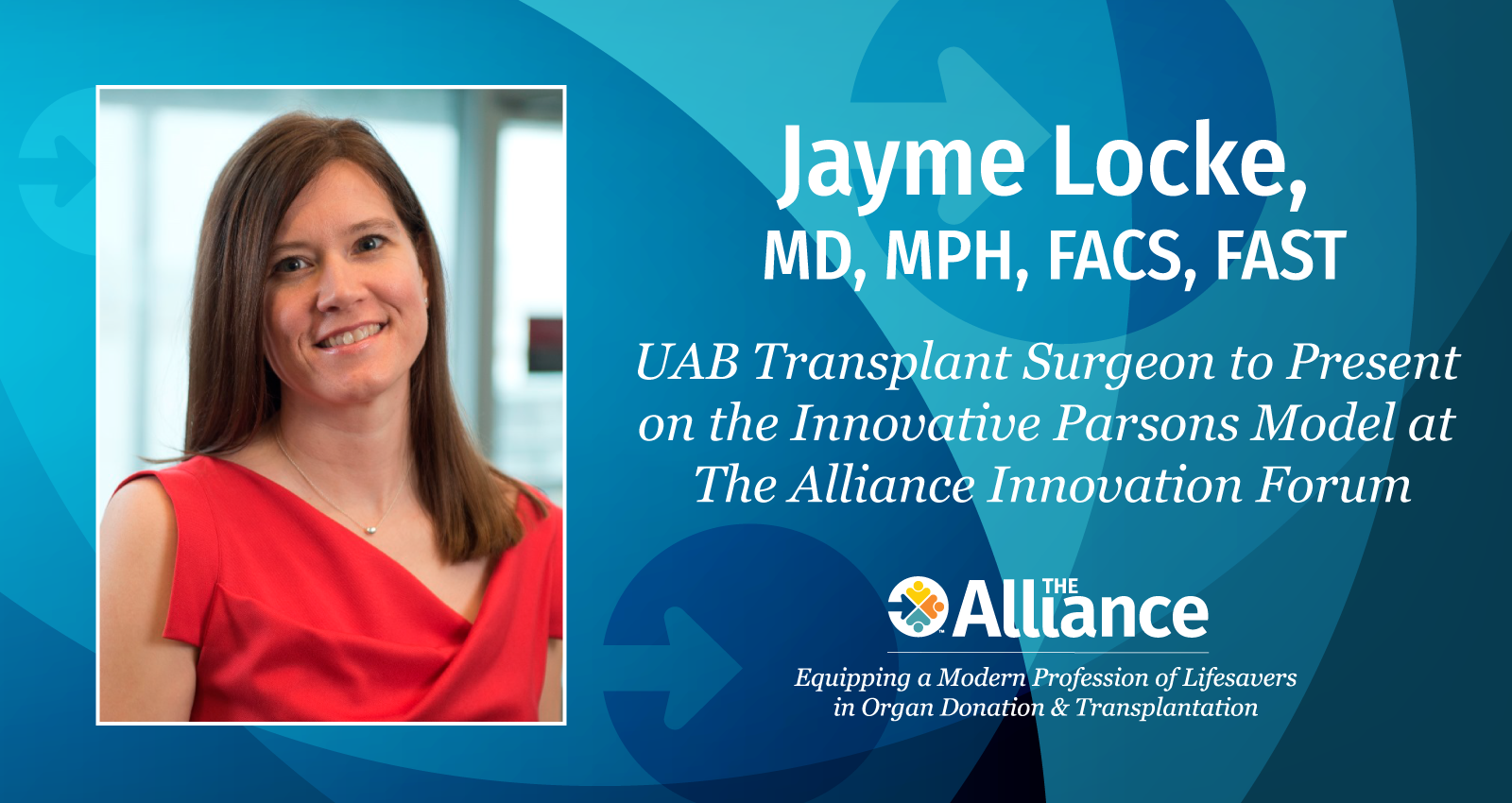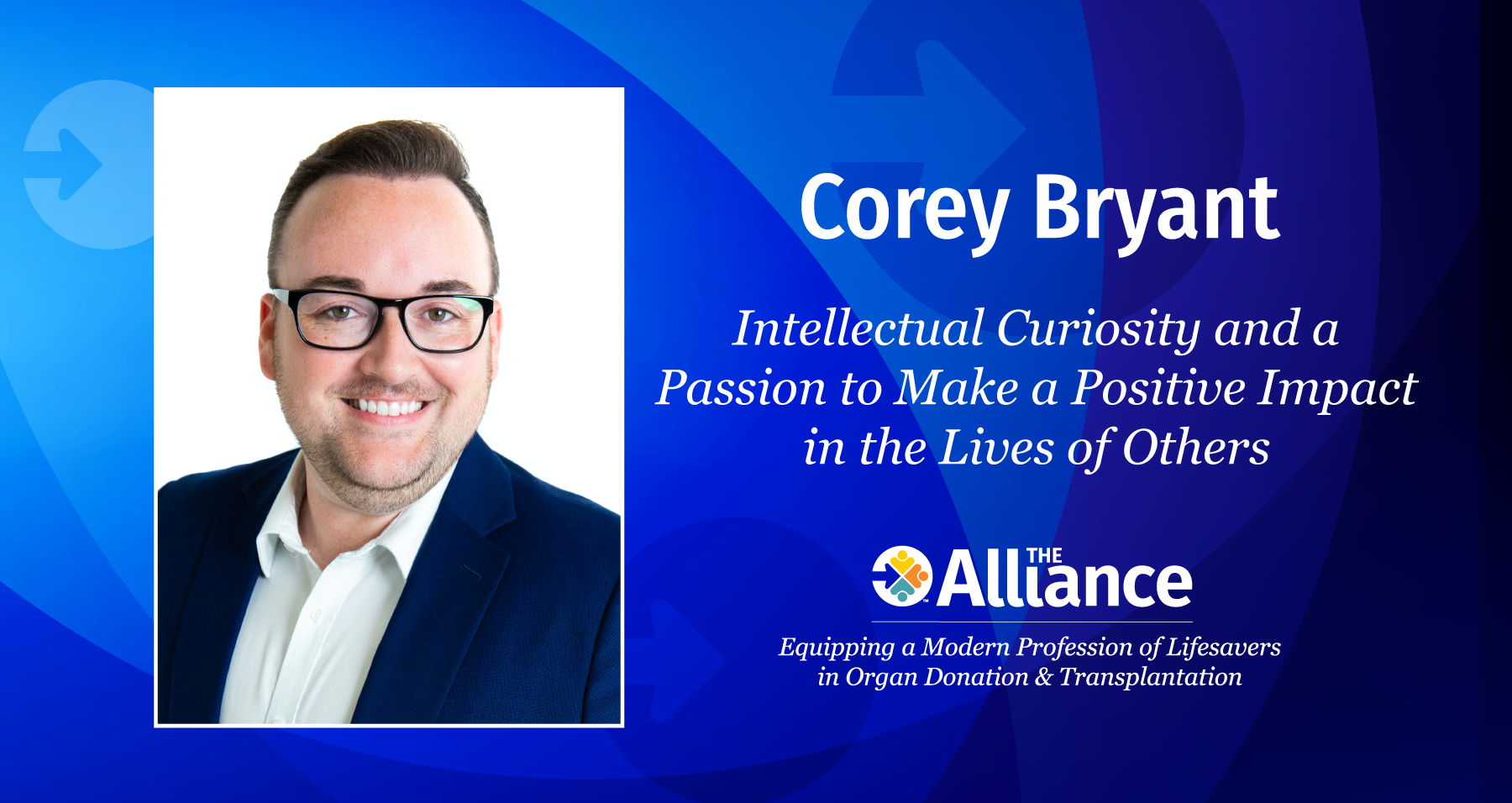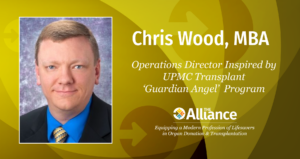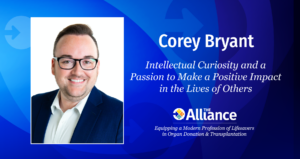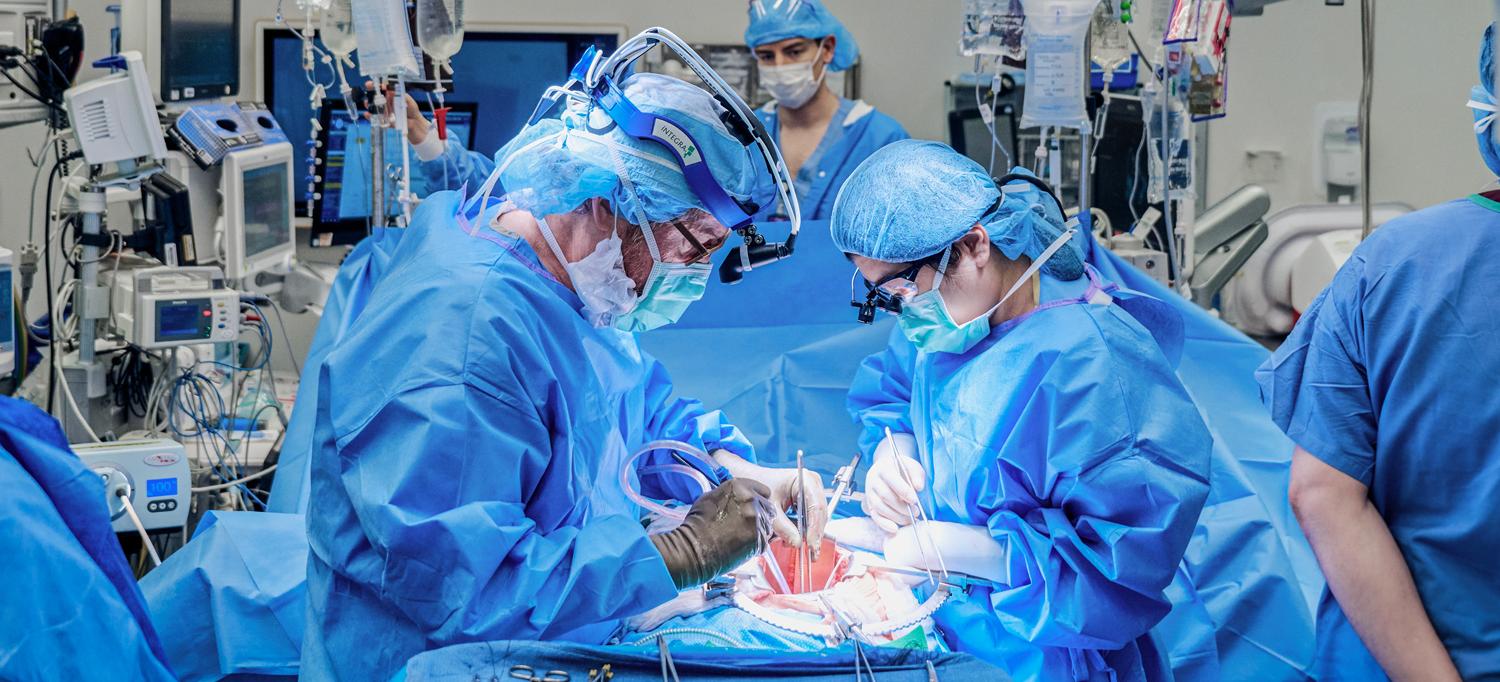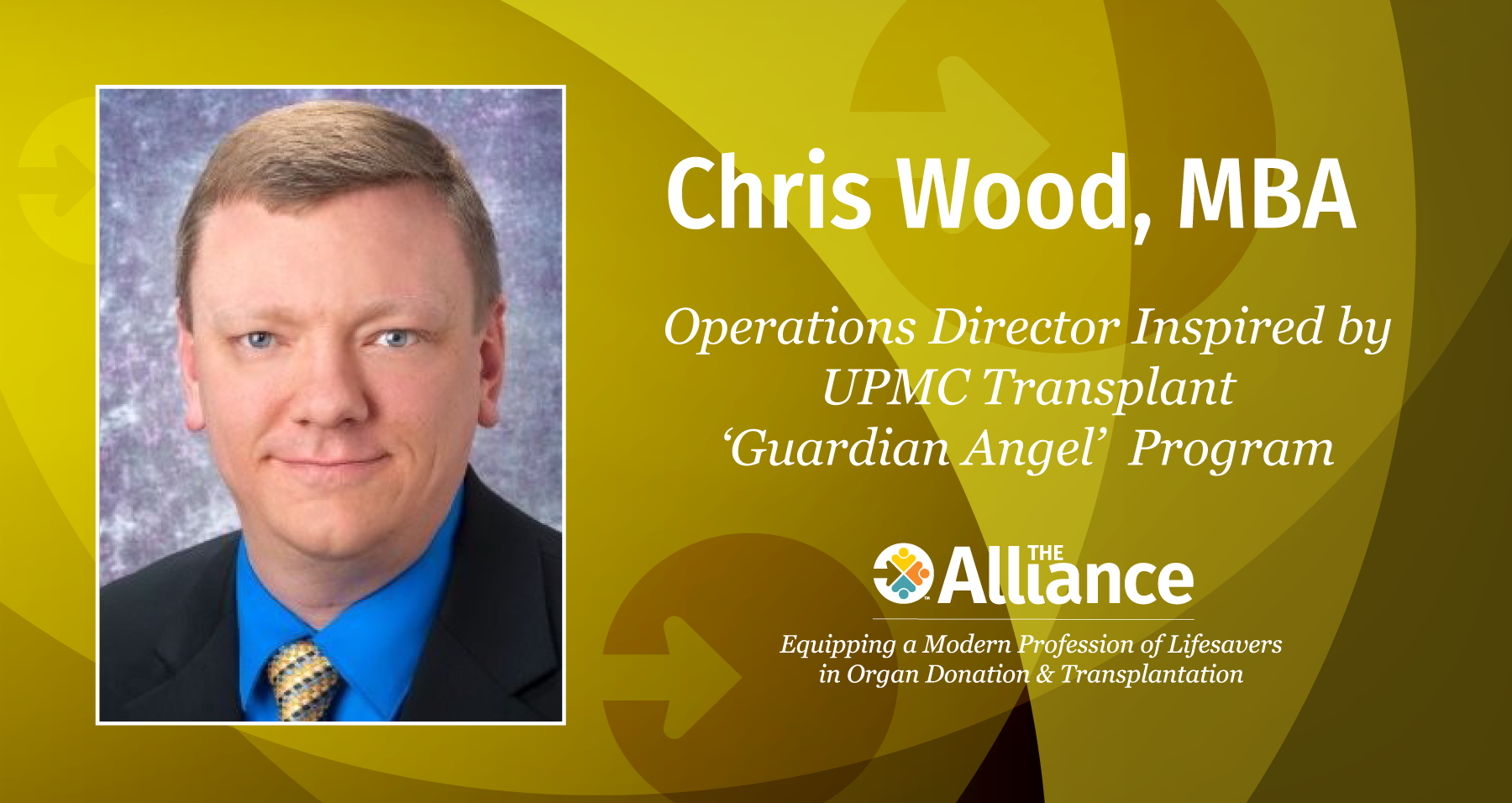Researcher Macey Levan says her true service is in doing cutting-edge, high-impact science that benefits patient and families impacted by organ donation and transplantation. “There are a lot of national policy issues in organ donation and transplantation, and I’m happy to use my voice to elevate them,” says Levan. “But our team’s real impact is through high-impact science that moves the needle on taking care of patients and families and what they need in the world. I work to elevate important research topics to make sure they can be sustained along with programs that we know are important.”
With 100+ publications to her name, Levan, JD, PhD, is the Associate Professor of Surgery and Population Health at NYU’s Grossman School of Medicine, and Director of the Qualitative Core of NYU’s Langone’s Center for Surgical and Transplant Applied Research (C-STAR). This year, she is chair of the Organ Donation and Transplantation Alliance (The Alliance) National Innovation Council, a group of 15 organ donation and transplantation professionals who work to facilitate innovative idea exchange. The group recently launched “The Alliance Innovation Corner,” a series of case studies that highlight innovations in the practice of organ donation and transplantation later this year.
She is also co-chair of The Alliance’s April 2024 National Innovation Forum, a one-day virtual meeting focused on the future of organs for transplant including xenotransplantation and 3D-printed organs.
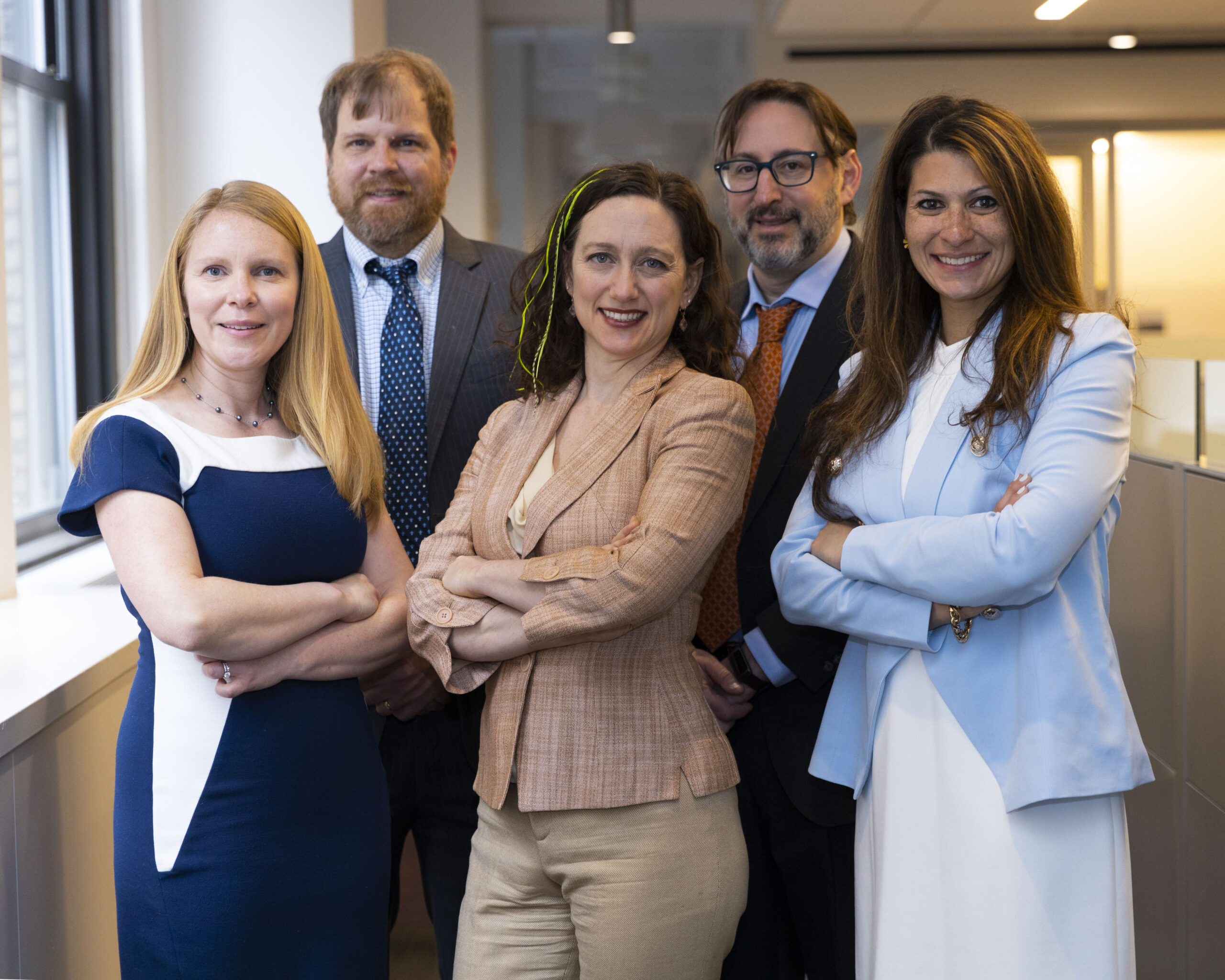
Innovation Led to Being a Transplantation Researcher
Levan says her involvement with transplantation was due to the public health informatics work she did as a doctoral student. “Innovation is at the forefront of why I got involved in transplantation,” says Levan. “I was recruited to Johns Hopkins out of my PhD program where I was using an innovative approach, using statewide health information exchange to collect data on the living donor population that was historically deemed as ‘lost to follow-up’.
Levan joined Johns Hopkins in 2016 and formed a long-time working relationship with boss and mentor, transplant surgeon Dorry Segev, MD, PhD. He and Dr. Bob Montgomery, who left Hopkins in 2016 to start the NYU Langone Transplant Institute, have pioneered incompatible living donor transplantation, kidney exchange, and HIV-to-HIV transplantation.
“We receive a lot of NIH funding to explore the development of new technologies that have the capacity to improve the way transplant patients are cared for,” she says. “We’re really interested in augmenting existing systems of care with AI. Our Center is focused on understanding AI’s value as well as its challenges so that we can improve how the transplant system uses what’s available to best optimize that for care.”
Living Donor Personal Experience
Levan’s interest in living donor outcomes comes from her personal experience as a living kidney donor for her cousin in 2009 after her first year of law school. “I always say I come to this work as a patient first because its true. I was a patient first 15 years ago,” says Levan. Dr. John Magee, Professor of Surgery at the University of Michigan and 2024 Board Chair of The Alliance, was her cousin’s transplant surgeon. Dr. Randy Sung, Professor of Surgery and Surgical Director of Kidney and Pancreas Transplantation at the University of Michigan, who is also involved with The Alliance, performed Levan’s living donation procedure.
“My connection to The Alliance comes from Drs. Magee and Sung. One of the reasons I care about supporting The Alliance so much is because the leadership has done a remarkable job of bringing people together and creating unbiased education and training.”
Levan was first introduced to the organ shortage during a bioethics class as an undergraduate at Indiana University. “It wasn’t until three or four years later when my cousin got sick, and ended up on dialysis and needed a kidney transplant,” that I finally understood that there are not enough organs available for transplant-says Levan. “I’m an only child, which was part of the reason my kidney donation was important to me, because my cousin was the closest family relationship that I had growing up.”
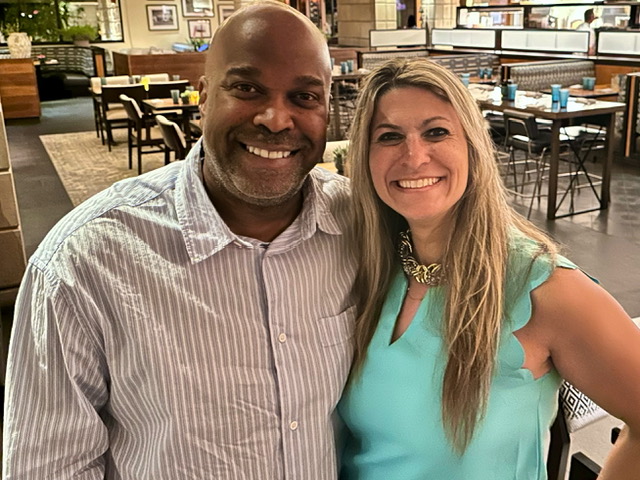
Levan said she decided to donate a kidney out of love, not fear. She comes from a family of attorneys and there were unanswered questions about the long-term effects of being a living donor. “I dug down into the data and understood that there were so many unknowns. It wasn’t until 2010, the year after I donated, that one of the first papers was published by Dr. Segev in JAMA about surgical safety for living donation. Then, it wasn’t until I was graduate student when Dr. Segev’s team published another landmark study in JAMA that said living donors actually do have a higher risk of getting end-stage kidney disease than if you didn’t donate, and it’s more prevalent if you are African American or Hispanic.”
Those questions about long-term effects of donation opened the door to Levan asking if it is possible to create new mechanisms to collect data, even if it doesn’t exist now. “I’ve built my career around researching how do we engage with donors after their donation in a way that allows us to track their outcomes. How do we get good data so that we can understand what happens to people when they’re 60..70..80 years old? There are still many unknowns that we’re working towards understanding.” Levan says there are approximately 170,000 living kidney donors in the U.S.
“I’m a big advocate for self-care and preventive medicine, focusing on kidney donors and maintaining their health after donation. The data shows that if you get diabetes, hypertension, and if you’re overweight, then your remaining kidney is at more risk. I try to make sure that all other donors know to take care of themselves.”
Has Benefitted from Mentors
Levan grew up in Indianapolis, the only child of parents who are both attorneys. She attended Pepperdine University for two years and then returned to Indiana and attended Indiana University in Indianapolis where she received a bachelor’s degree in philosophy, medical humanities, and health studies; a juris doctorate from the Indiana University Maurer School of Law in Bloomington; and a doctorate in health policy and management from the Indiana University Richard M. Fairbanks School of Public Health. In 2023, she received a Distinguished Service Award from IU Maurer law school, for her service to the national organ transplant system.
Levan talks at length about the mentors who have supported her career and says she takes it very personally when people reach out to her for mentorship. “It’s the people that do reach out that I spend time with, and want to support, because that’s who I was. I was just a kid who had something happen in my family. I wanted to help by being a donor, but I didn’t know all the repercussions of it. So, I got curious, and figured I could help more people by learning more. My mentors have enabled me to do that.”
In 2010, the summer after her living donation, she interned with the University of Michigan Transplant Center Administrator Anne Murphy. “She was my very first mentor in transplantation,” says Levan. “She was the one who realized I was interested and gave me a chance. She catapulted my career in transplantation, and I promised her I would always pay it forward.”
As an undergraduate at Indiana, Levan took a bioethics class from Jason T. Eberl, who now directs the Center for Health Care Ethics at St. Louis University. He suggested she apply for a new PhD program in Public Health. “He said ‘I think studying science is the way for you to go.’ I applied and I got in, which is where I started learning how to think like a scientist and figured out how I could use my combined skills from law school to operationalize complex research programs.”
During her PhD program, she met Elisa Gordon, who was a transplant ethicist at Northwestern University and is now at Vanderbilt University. “She was the one that told me to reach out to Dorry Segev, who was then at Johns Hopkins. She said, ‘I know you’re going to need postdoc training and Dorry has a large NIH cohort study of living donor outcomes. He’s someone that would have the ability to train you and give you what you need.’”
After connecting with Segev, she was invited to Baltimore to present her work, and subsequently join the Epidemiology Research Group in Organ Transplantation (ERGOT), at Johns Hopkins. In 2022, the team moved to NYU Langone Transplant Institute and launched the Center for Surgical and Transplant Applied Research (C-STAR).
Levan also holds a faculty position at Purdue University where she teaches in the Master of Health Care Administration program. She’s currently teaching two classes, Managing Complex Healthcare Operations and Strategic Planning and Marketing for Healthcare.
Loves Maryland and Travel
Levan lives on the Eastern Shore of Maryland in a rural area in the middle of the Delmarva Peninsula on a four-acre property. She loves to get out and walk with her two dogs, a Pitbull and a Shiba Inu who are nine and 10 years old. “They are my babies and I love them. They’re my little buddies,” she says.
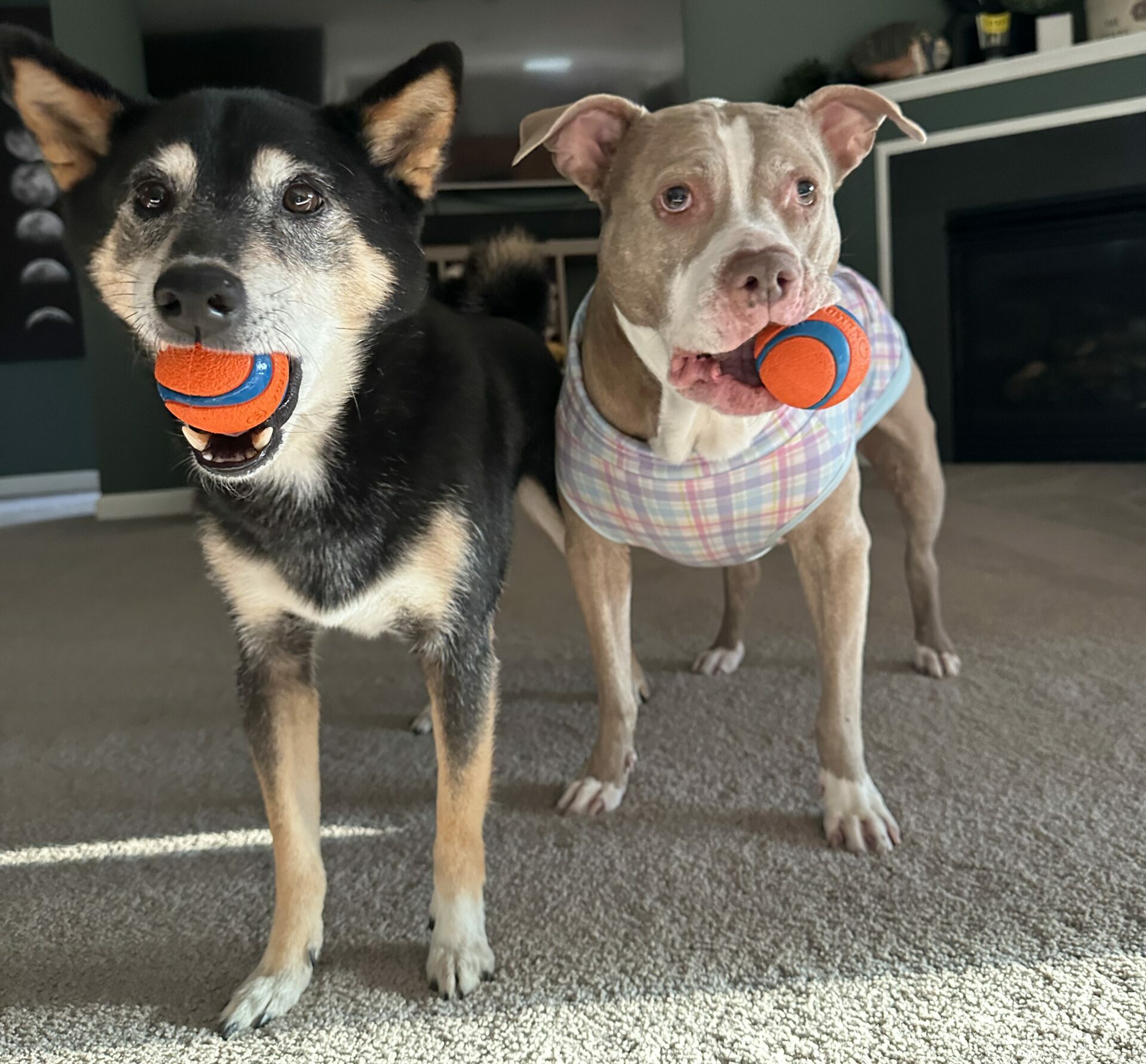
Levan says she’s fallen in love with Maryland where she works remotely and commutes once a month to NYU’s C-STAR offices on Park Avenue in New York City. She and her husband, who works in international business and IT consulting, moved to the Eastern Shore from Baltimore during the pandemic in 2020 and were married there. They’ve recently taken up bowling and are big home cooks.

She says she has a lust for travel and has been fortunate to travel everywhere that she’s wanted to go. Her job enables her to travel the world and she has planned work trips to Ireland, Italy, and Istanbul in 2024.
“Italy is my favorite place I’ve ever been to because I’m part Sicilian,” says Levan. “I’m biracial, my dad is black and my mom is white. My mom’s side is Sicilian and Slovak, so Italy feels like home to me when I’m there.”
“I have identified as black in lots of situations, and I identify as biracial in others,” she continues. “It’s an important part of who I am. There are major challenges for everybody in the world today and it doesn’t make it any easier or harder to be biracial. But it is who I am.”




